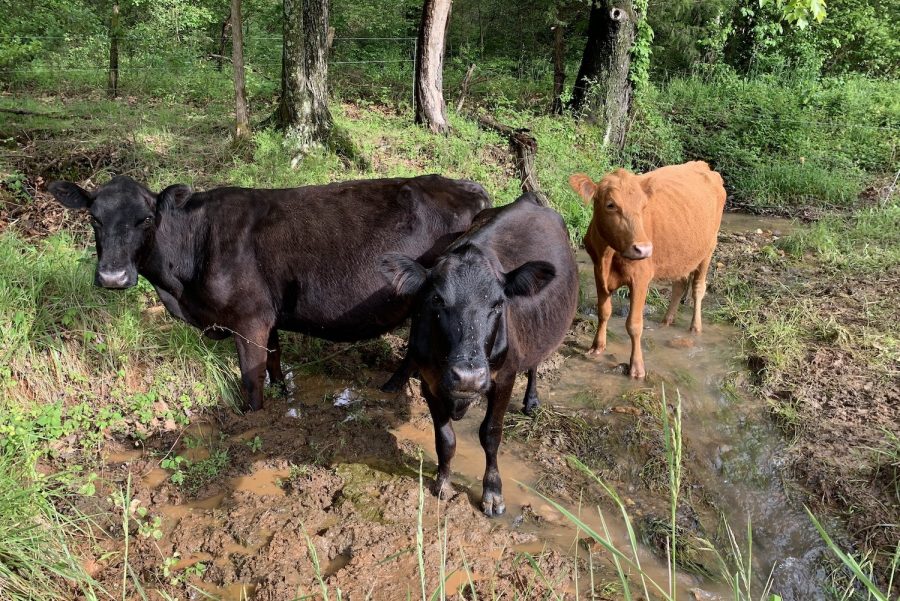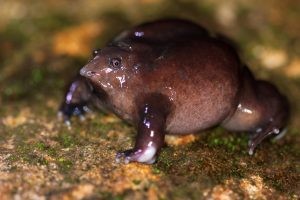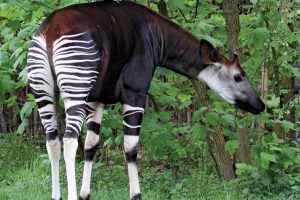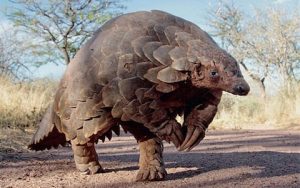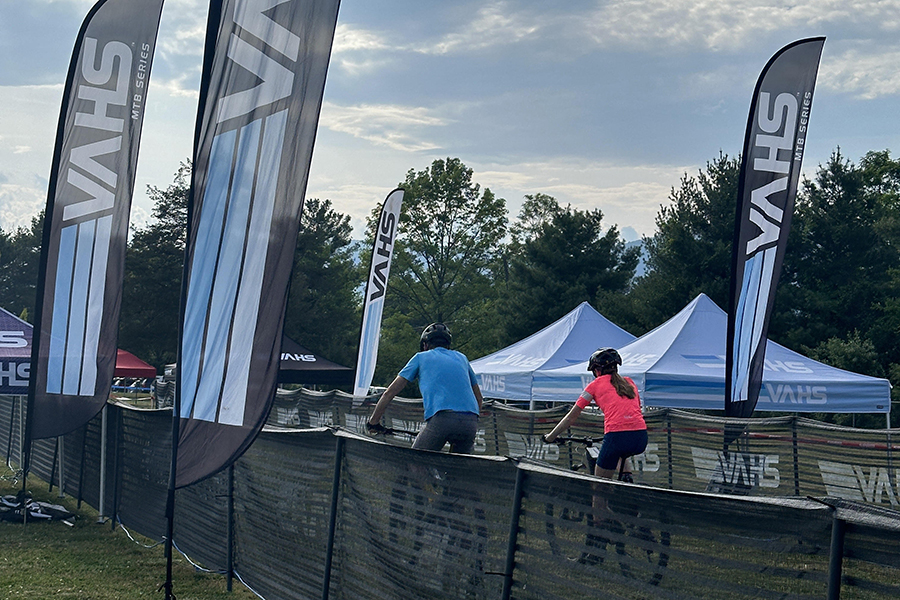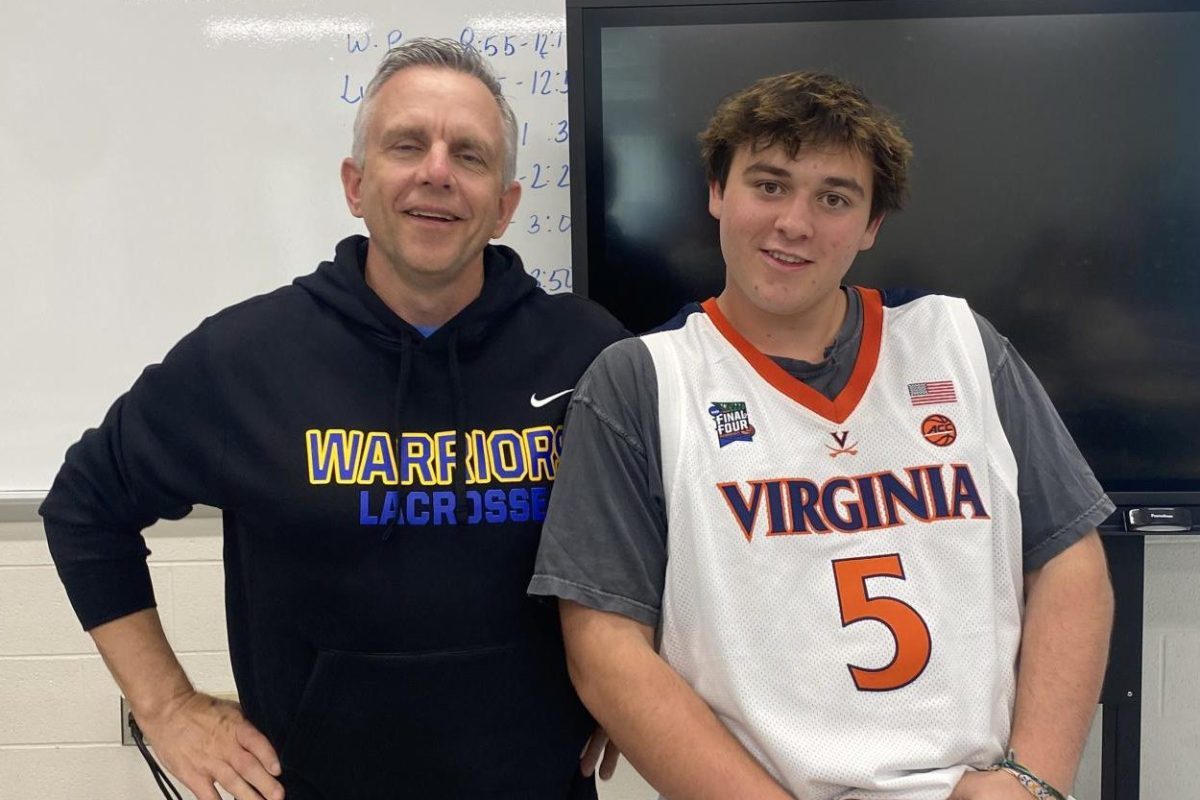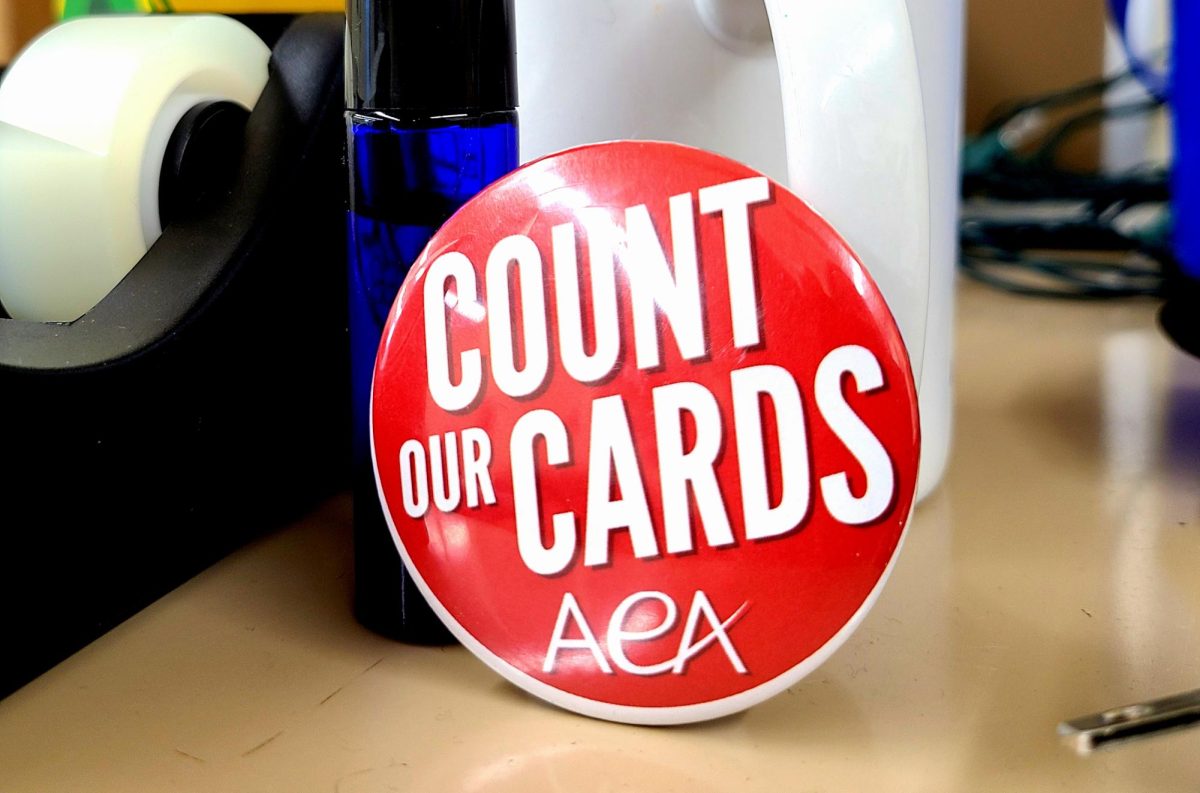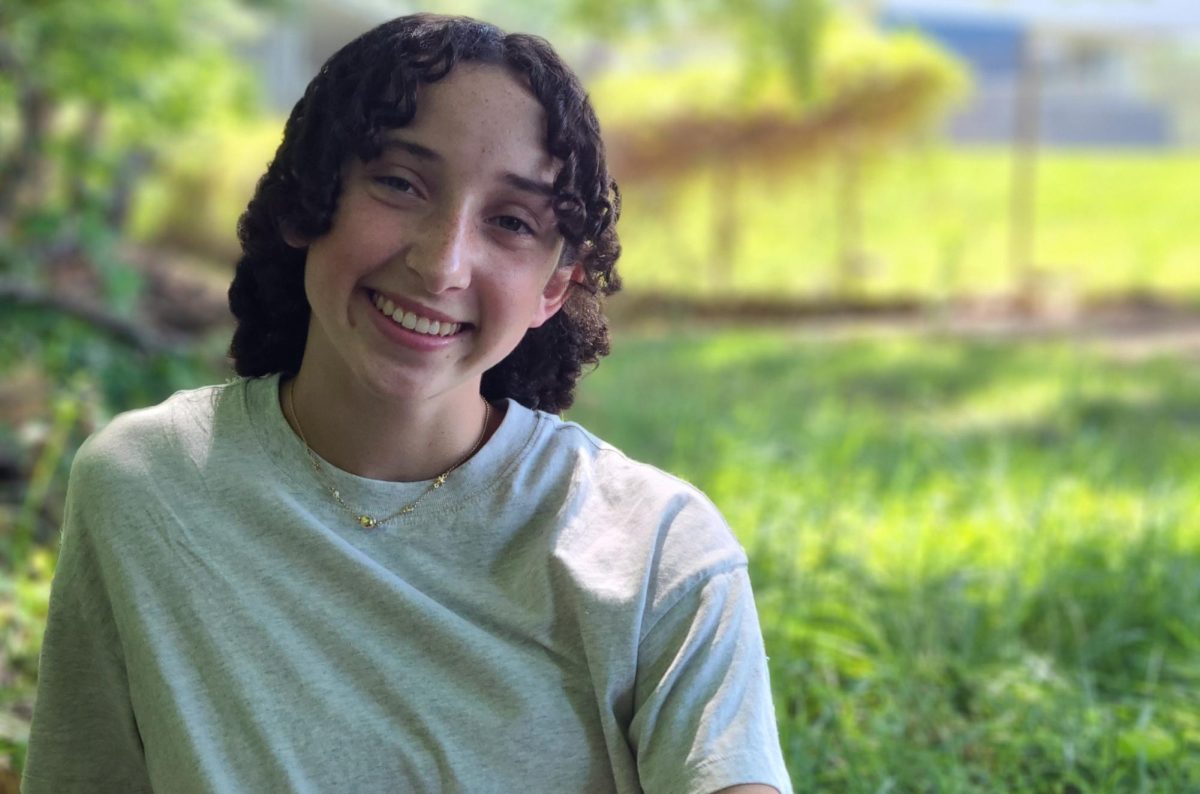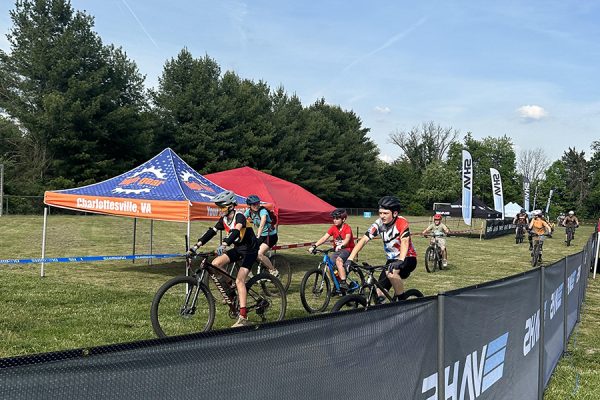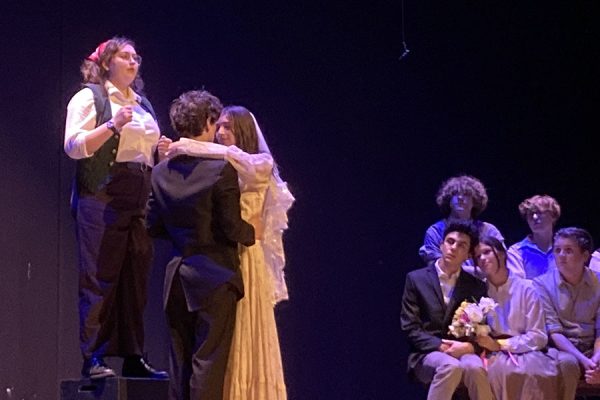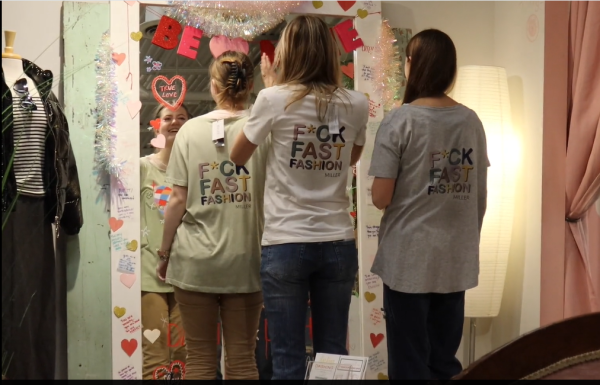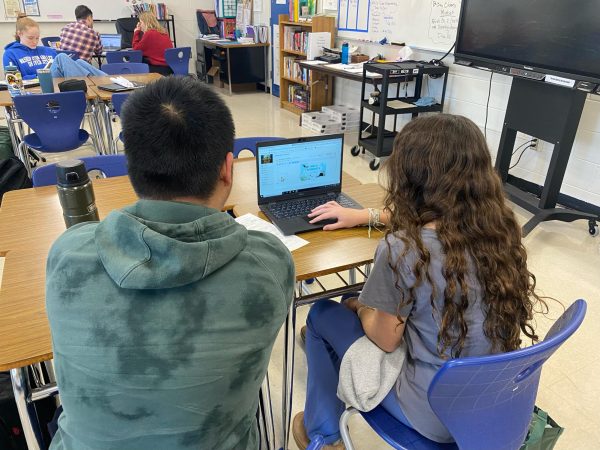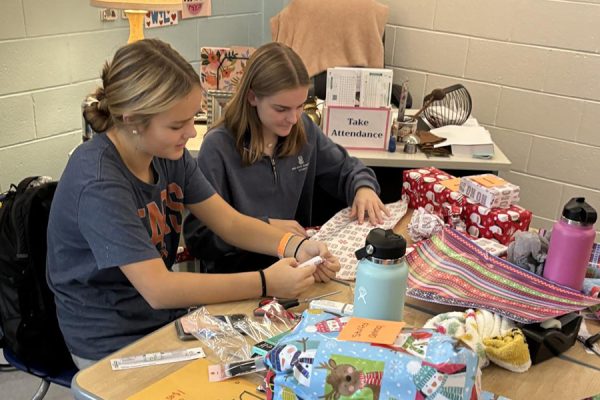While the World Stops, the Animals Keep on Moving
COVID-19 has already complicated the delicate human-animal balance of one small farm
May 29, 2020
While the coronavirus-induced quarantine has closed schools across the country, including our very own Western Albemarle, students have been attempting to balance the freedom and restrictions of staying home with concentration on schoolwork. Sometimes that means placing a phone across the room, or forswearing Netflix and Disney+ for a few days at a time. At other times, other residents of the household may be the problem, whether they be younger siblings or needy pets. Unfortunately, many of us fall victim to the charms of the latter, to the detriment of our math and foreign language skills. Particularly those with many, many diverse pets, like myself, are guilty of this.
I myself have quite a lot of animals that one might describe as pets, which have ended up dictating what I do and when. While the number fluctuates often due to new births and hatchings of critters, as well as the sales and the too-often predator attacks on the chickens, my family has a small farm with roughly 35 adult chickens who lay eggs, 11 adult ducks alongside 15 ducklings, 2 geese, 13 adult and 15 juvenile helmeted guineafowl (a bird that eats ticks and pests), 36 older sheep and 33 lambs, and 15 cows, plus the two evil goats and Dusty the Donkey. While most of these animals have a purpose, pretty much every bird and adult mammal has a name and therefore, an emotional attachment to myself that prevents them from becoming dinner, even after their useful days are behind them. However, this prevents us from making much of a profit on the whole “farm” scheme- the younger animals we do sell essentially just pay the bills for everyone who stays.
My typical day starts at 9 am. I wake up, rush outside, and do a quick fifteen-minute once-over of the animals. The ducks, chickens, and geese in the big pen, which has the vast majority of the birds are let out of their nighttime coop into a one-acre paddock surrounded by protective electric netting, where they have plenty of grass to search for bugs in. However, they first run to the feeder provided for them for an initial breakfast. They also get water from the big livestock bucket, which the ducks will promptly swim in.
Next up, the broodies in the barn are tended to. A broody hen is a chicken who is either raising chicks or attempting to hatch chicks. Currently, we have 4 who are separated from the rest of the flock so they aren’t bothered for the 3-week duration of their sitting. They are kept company by the 4 “specials,” and a rooster I am babysitting temporarily while his owner fixes their coop. The specials are 3 hens and a rooster who have problems when in a big flock, and do better when in a lower-stress environment. This includes Zaya the rooster, who has deformed feet that make fast movement impossible, making him an easy target to be picked on by the bigger roosters Their water and feed are refilled, and any necessary help is given as needed. Most days, they are all fine, so I continue to the next task.
Connecting to the backside of the barn is the nighttime sheep paddock. Each morning, the sheep are released out the back of their pen into the woods, where they walk a winding trail up a hill and into pasture. Before they are released, all of the sheep are inspected by sight to make sure there are no problems. Because sheep are prey animals, they instinctively will be very subtle about showing signs of weakness or illness until it’s too late, so you have to be inquisitive enough to notice odd behavior, the most common being sheep standing stiffly with a hunched back. Lately, I have also been keeping an extra eye on our first ever triplets, Saoirse, Kiera, and Fiona, to make sure they are getting enough milk from their overwhelmed mother. The triplets are members of the group of lambs we call the “Super Seven.” These lambs were the late final births of the year, all born within one week and all females. While they are incredibly cute, they are also infuriatingly stupid, to the extent that their antics have forced me to be late to or miss five Zoom classes.
Currently, 18 of the biggest lambs are being weaned, or being cut off from their mother’s milk. They have gotten big enough that they can eat grass, and are drinking so much milk that their mothers are losing too much weight. They have a separate field adjacent to the nighttime paddock, for the purpose of allowing them to still find comfort by being near their parents. However, even this is unacceptable to them, as evidenced by their constant bleating of indignation. After a week or so, they will be fine again when the mothers have their milk all dried up and they will be able to be back with the rest of the flock. Their only morning requirement is a checkup to make sure nobody has gotten themselves hurt or stuck anywhere. After this, it is on to the shed and the small flock.
In the poultry shed, two separate pens have been set up: one for the eleven ducklings, and one for the 15 guineafowl keets that is shared with six chicks. They are quickly given refills in the water department, and some food is tossed to them. Finally, beside the poultry shed is the small flock. Containing the bantams (miniature chickens), including our two silkies, Gayle and Blue Moon, as well as a few bigger hens who are more pet than livestock animal, such as the very friendly Katie, who looks like a big white cloud. To their dislike, they room with two ducks, Waffles and Spice. Waffles is an Indian Runner, a type of duck that walks vertically, who was a birthday gift for me. His girlfriend, Spice, is constantly trying to hatch eggs, however, she has been wildly unsuccessful, and even attacked a duckling we tried to give to her.
After these animals are cared for, I must run inside, and attend my first Zoom. The rest of the day is a balance of Zooming, attempting to do work, and getting bored and visiting all of the animals. Regardless of the weather or my workload, I generally take a half hour or so in the middle of the day to visit the cows, who are fairly far away from the house. While we have one calf being raised on a bottle in the barn, the big cows with their calves and our friendly red bull, Joe Biden, live on pasture day and night. While every cow has a different personality, the nicest are often the ones who were bottle raised themselves. Edie Windsor, who has a mother that couldn’t milk, and Ruth Bader Ginsburg, who we stumbled upon when we were selling sheep a few years back, and even Joe Biden (the older brother of Edie) are the tamest because of this.
One of our other cows, and a favorite of mine since I was young, Blaze, has had a storied life. Not only did she survive an emergency surgery my father and I had to do after she fell gravely ill with a highly fatal condition, she managed to get herself stuck in a freezing cold creek bed in late April. After two hours of trying to lever her out of what was essentially a big mud pit to no avail, the local North Garden volunteer fire department came to the rescue, and with the help of 15 officers and volunteers, and after close to six hours total in the creek, Blaze was rescued (in a very soggy, cold, sore and annoyed yet healthy fashion). It is amusing to me that the only non-medical breach of social distancing I’ve committed was in the rescue of a clumsy cow.
After my work is done for the day, our family takes the two goats, Annie and Maddie, out of their small pen and let them help chase the sheep back to the barn for the night. The goats, in all their evil glory, revel in the fear they strike into the sheep when they see them. If they were allowed, they would spend an unsafe amount of time chasing and charging their slower grass-eating relatives Once the sheep gate is closed, and all of the chickens are put to sleep in their coops, and the guineafowl are all confirmed to be roosting in a protected area, and the eggs are all collected, the farm is closed for the night. Of course, until all of the fun starts over again the very next day.



